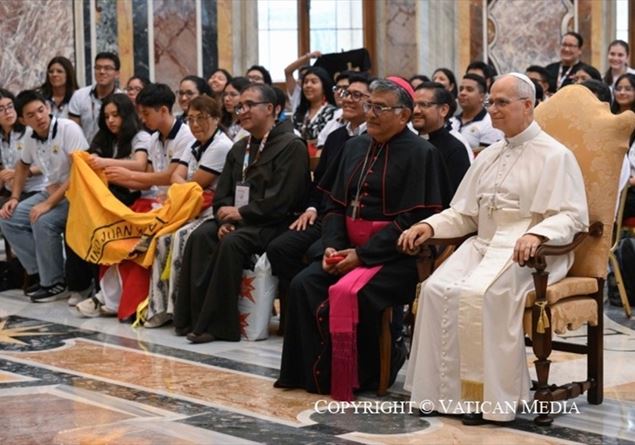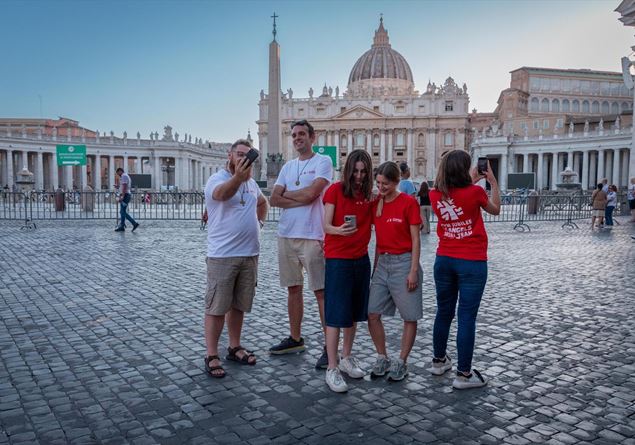Piero Martello.
On the Feast of May 1st Piero Martello, former president of the Labor Court of Milan and director of the prestigious labor journalistic magazine www.lavorodirittieuropa.it makes an important clarification: «It is more correct to talk about workers. It is not a purely lexical question. The original sense of the anniversary is to celebrate the battles and the rights conquered by those who work, not the work itself. The work, in fact, was (especially in the past) also effort, risk, exploitation. The party was born to give voice and recognition to workers, not to enhance the abstract production activity ».
What was celebrated, then, at the origins of this anniversary?
«In the United States, where everything began, a law was launched that fixed an eight -hour working hours for the first time. At the time it was working from darkness to dawn, even on Saturdays. Getting the eight-hour working day was a huge goal, so much so that the workers marched under a very clear slogan called 8-8-8: “8 hours of work, rest, 8 of leisure or family”. Speaking of working hours, there were no limits were working every day. These were the working regimes of that era. Not to mention how workers were treated. It was the era in which women and children also worked in the mine. Women were paid half of men and children half of women. Here’s what they celebrated: the conquest of a more human life. “
And today, what’s the point of this party?
«It still has a fundamental value. It serves to remember how long and difficult the path of labor law has been. Making union, once, was considered a crime. The Zanardelli code pursued those who organized trade union initiatives. Today, however, the union is fully recognized. The real challenge is to find forms of participation of workers in business life. Article 1 of our Constitution – “Italy is a republic founded at work” – is not only rhetoric: it recognizes a function of active citizenship at work, not just a salary. “
During fascism the work festival was canceled.
“Yes, it was abolished. The fascist regime tried to replace it with another anniversary, on April 21, the Christmas of Rome, emptying it of its social meaning. It is also a betrayal of the union past of Mussolini himself, after all. Only in 1946, with La Repubblica, the May 1st feast was finally reintroduced. “
Speaking of evolution of rights: what was the role of the workers’ statute? He certainly made a milestone …
«I would not talk about milestone, the path of the history of workers’ rights is made by subsequent steps, by tiles affixed on this path. But it certainly marked the change of an era, it is part of a path that began in 1966, when the first law was introduced that required the justified reason for layoffs. The idea that the entrepreneur should justify the dismissal of an employee was a new fact. The subsequent laws have maintained it. Hence the importance of the statute that introduced the principle of reintegration of the worker in case of lack of just cause or justified reason. A rule attenuated to a good extent by the Job Act (it is one of the rules subject to the referendum). The statute is an important point. Changes the logic below. It is not limited to talking about remuneration but also of the presence of the union in the workplace, the rights of the union and of the workers, who previously did not have the assembly, the company representatives etc. “.
A fundamental moment.
«It was a change of logic and approach. He has not only regulated the dismissal. Favored support legislation (such as the presence and operation of union in the company). Think that in the past in many companies there were the “Departments-Confine”, the most tiring and heavy ones, where uncomfortable trade unionists were sent. There were also the “ad nutum” layoffs, that is, without motivation. With the Statute, approved in 1970, the principle of reinstatement (i.e. of the readmission in the workplace) is affirmed and the duty for the employer to motivate the layoffs is strengthened. It is a turning point, which has also inspired all subsequent legislation ».
Yet, with the Jobs Act, many of those protections have been reduced.
“The Jobs Act was born from a purely economic logic: the unjustified dismissal entails the payment of an indemnity in most cases and reintegration remains only in a few cases. A logic that has reduced the principle of reintegration. But today, one of the proposed referendum aims to restore these protections, expanding cases of reinstatement after an illegitimate dismissal ».
You also spoke of the problem of asymmetrical contractual power. What does it mean?
«In the world of work, the two parties – employer and worker – do not have the same contractual force. The globalized economy accentuated this imbalance. It is necessary to reduce this asymmetry and build relationships based on mutual respect, also through the strengthening of collective bargaining ».
Speaking of protections, she in her magazine “ThereVorodirittieuropa “supports through articles and insights also the minimum legal salary. According to Confindustria, the minimum wage is a false problem, because all the contracts that are belonging to this association exceed the minimum guaranteed.
«Confindustria contracts, however higher than the guaranteed minimum, do not cover the entire world of work. There is a vast black work area, corporal and small non -associated companies in which the salary is not dignified. The minimum salary serves precisely to guarantee a threshold of dignity even to those who work outside the perimeter of collective bargaining. All advanced countries have it: Italy is an exception, and not positive. “
Is the corporal still an emergency?
“It is, and not only in the South. In the North it is widespread in logistics, as the investigations of the Public Prosecutor of Milan have shown, with Dr. Paolo Storari at the forefront in the investigation and fighting this plague. These are forms of exploitation that shave slavery, such as that of Chinese workers forced to live, eat and sleep in the sheds. It is a scandalous, often invisible reality. “
What are the main challenges in the world of work in Italy today?
“Those who also reported President Mattarella and who Eurostat reiterated yesterday: we must guarantee acceptable and dignified salaries, overcoming the tendency to the substantial drop in purchasing power. Over the past 30 years, workers’ salaries have decreased. Another urgency is to eliminate poor work, which concerns those workers who have a job but a salary that remains under the poverty threshold, and give true attention to the accidents: this daily stretches of deaths at work is intolerable. It is necessary to act on prevention. And then there is the theme of precariousness, in all its forms: from the corporal, which remains one of the most serious and widespread expressions, up to the term contracts used in a distorted way. “
Pope Francis’ thought at work was very present in the public debate. How does it interpret it?
«Pope Francis had the great merit of strongly restoring the dignity of the worker in the center, in the wake of the social doctrine of the Church. But he also made an evolution of language: he spoke in a simple, direct, evangelical way, without filters, without ecclesial baroque. This has allowed people to understand it and feel it happens. Humile people, and workers, understood that he knew their needs. Just look at the emotional participation in his funeral to understand how close to the humble it was ».
Many, however, have labeled him as “left”, even “communist”.
«It is a ridiculous accusation, which demonstrates ignorance. Those who say such a thing have never really read the Gospel or the social doctrine of the Church. The principles that the Pope has reaffirmed, like those expressed in the parable of the workers of the last hour, are deeply evangelical. It is paradoxical that today it is also praised by those who yesterday accused him: it is the hypocrisy of those who are scandalized in the face of Christian consistency. “
Let’s talk about the referendum at work. Do you support them?
“I claim that you have to go to vote. They are important because they affect the organization of work in depth. One of the most significant questions concerns security: it provides for a liability shared between the client and the contractor. In this way, those who entrust the work is responsible: it will no longer be able to limit themselves to choosing the lowest quote, will have to seriously evaluate the safety conditions offered by the contractor, check the machinery, check if the workers are put in order. “
Another referendum touches theto reintegration in the workplace. What would change?
«In recent years, the rules have limited the cases in which the reintegration of the worker dismissed unjustly. The referendum would restore wider protection, reporting balance in a discipline that has bent too much to the employer interests ».
A final appeal?
“Go voting. Everyone will decide whether to vote yes or no, but this important instrument of democracy should be practiced. It is not a question of parties, but a high form of democratic participation. It concerns everyone, not only workers: participation in collective choices is at stake ».











